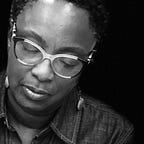Ukraine: Whose Lives Are Worth Saving?
Over my long career, I’ve interacted with all types of students from varying economic backgrounds, races, religions, and ethnicities. For the most part, I’ve found that once young people are treated fairly by adults and allowed space for free expression, they usually strive to become the very best of themselves. When I was in the classroom, I always imagined my own child sitting at a desk before me, so I could readily forgive students who crossed the line or apologize whenever I inadvertently offended someone with a sarcastic or flippant remark. I am not a person who says I don’t see color, I do see color; because it allows me to see distinct differences in others while noting our common humanity.
Over the past few weeks, I, like millions of people around the world, have been viewing Russia’s invasion of Ukraine. The images and testimonies of people fleeing to safety have been difficult to watch. Nevertheless, the outpouring of assistance and concern from far and near for the Ukrainian refugees has been unprecedented and well deserved. It also has been heartbreaking to watch the disparate treatment given to students of African and Asian descent in Ukraine and Poland. These students of color have documented and reported harrowing stories of prejudice and cruelty that have left them in precarious situations, having to fend for themselves while a war wages. In prohibiting POC from boarding trains and sending them to the back of queues, Ukrainian and Polish authorities did not see human beings, only skin color.
The treatment of the students in Ukraine brought to mind the tragic events of February 14, 2018, when I was in a classroom, about 25 minutes away from Stoneman Douglas High School in Florida. Since mass shootings are common occurrences throughout the United States, each year teachers and students undergo numerous drills as part of the American school curriculum. We commit to memory all of the color-coded alerts and the coordinating actions for each. Sadly, many of us know how it feels to be locked in a room for hours, lights off, crouched in far corners, awaiting an “all clear” signal with 25 students in tow. In the event of a shooting at our school, how would I have decided who to send to safety first? Would it have been based on physical stature, letting the tiniest go first? Or would my decision default to gender, letting the girls go first? Or if I had students from a Study Abroad program, would I only allow U.S. citizens to leave? Or like Ukraine and Polish authorities would I decide based on skin color?
All of my students were precious to me: the mischievous ones, the class clowns, the studious and serious, and the disinterested. As a Black woman of Caribbean heritage, would it have been morally right to send the Caribbean students to safety first? How could I have saved Markal and not Adam? How could I save Gigi and not Melanie? In a time of war or imminent danger, how does an individual pick one mother’s child over another? How does a man see a suckling baby at a mother’s bosom, exposed to the blistering elements, and not show compassion? Yet, he can pivot to rescue an animal, and ensure its safety.
The media have been assiduous in their effort to diminish the mistreatment of Black and brown people in Ukraine. Shaun King, the social media activist wrote an article and even the BBC has edited tweets to minimize the initial posts made by Black people. However, the inhumane behavior that has been displayed and archived cannot be unseen. Comedian Trevor Noah highlighted Ukrainian citizens feeding their invaders and allowing them to call their parents back home in Russia. However, for many, these humanitarian displays of kindness ended when the people involved weren’t their adversaries in war, but merely students with Black and brown skins. It reminded me of the heroic African-American soldiers who returned from fighting Germans in World War I and II to be lynched or beaten by white mobs.
Many people who are witnessing the atrocities in Ukraine are upset by the devastation and loss of life, as they should be. But there are many of us who also think of the intractable hardships experienced by millions around the globe and are deserving of the same energy. The President of Haiti was assassinated last year, and to date, no one has yet been brought to trial for his murder, leaving a shellshocked dissolving nation. There are over 5 million internally displaced persons (IDP) in the Democratic Republic of Congo with over 6 million lives lost from decades of war. How about the children in Yemen and Syria; Afghanistan and Myanmar; Mali and Palestine; Mozambique and Burkina Faso; the lost girls of Nigeria and migrants languishing in Libya? Just like I could not shepherd specific students to safety while others faced imminent death; I find it callous and disingenuous that all the suffering around the world is not being given the same attention as the current events unfolding in Ukraine.
